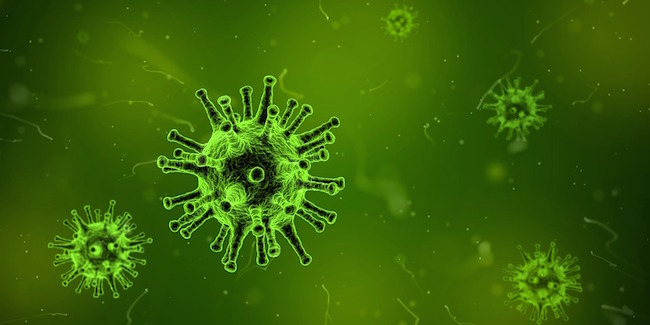How the environment may be promoting cancer (and how you can reduce these effects) by: Ellaine Castillo for Natural News
People are constantly exposed to cancer-causing agents, even without them knowing it. These toxins are abundantly found in the environment that you live, work, and play in. However, this doesn’t mean that you should just lock yourself indoors to protect yourself against cancer. Take this as an opportunity instead to learn more about these risks and arm yourself with the knowledge that will help improve your chances against this disease.
The environment promotes cancer in various ways. Fortunately, there are also steps that you can take against these effects. Below are five ways through which the environment increases cancer risk and some actions that you can take to counter them.
- Reducing immune function — The immune system is always on the lookout for cells that can possibly become cancerous. However, toxins in the environment can interfere with this natural defense mechanism against cancer. To combat this effect, you can increase your intake of immune-boosting nutrients like vitamin D, which is effective against colon cancer. Additionally, you can include reishi mushrooms in your diet since these work against liver, lymphoma, and lung cancer cells.
- Causing DNA damage — Environmental toxins promote the growth of cancer cells by inflicting damage on the DNA strands. This damage can trigger mutations which are known to cause cancer. One way to prevent this from happening is by increasing your intake of antioxidants like vitamins C and E.
- Disrupting the endocrine system — Some chemicals in the environment interact with sex hormones like estrogen or their receptors. This leads to the development of hormone-dependent cancers, including those of the prostate, uterus, and breast. Include more folic acid, vitamins C and E, and probiotics in your diet to prevent these cancers. You can also increase your intake of plant flavonoids like genistein and quercetin. These compounds work by enhancing the excretion of toxins and reducing their absorption into the intestinal tract.
- Preventing normal cell death — Healthy cells normally die off when the time comes. However, there are environmental toxins that prevent programmed cell death. This allows cells to reproduce uncontrollably and form cancerous tumors. There are nutrients that restore the normal cell self-destruction program that you can incorporate in your diet. Some examples of these include coffee extract, selenium, and pine bark extract.
- Impairing liver detoxification — The liver plays a pivotal role in the elimination of toxins from the body. But excessive amounts of toxins in the body can impair its detoxification system. This allows the toxins to stay in the body and can even cause relatively harmless substances to be converted into cancer-causing agents. To improve liver function, increase your intake of curcumin, folic acid, and garlic.
Common cancer-causing toxins in the environment
An important aspect of cancer prevention is knowing what toxins you should avoid. Some of the most common cancer-causing agents in the environment include the following:
- Aflatoxins — Exposure to this toxin, which is commonly produced by fungi, can cause significant liver damage. This happens because aflatoxin switches off the gene that triggers cell death. (Related: Molds in food supplies are thought to be responsible for thousands of cases of liver cancer, immune suppression in children.)
- Bisphenol A — Bisphenol A (BPA) is an industrial chemical found in most plastics and resins. This toxin can seep into food, water, and the environment. It has been associated with adverse effects on the brain, behavior, and prostate gland of fetuses and infants.
- Heavy metals — Lead, mercury, cadmium, and arsenic are some of the most common heavy metals that can get into the body. These are abundantly found in water, pesticides, and air pollution. Excessive amounts of heavy metals can lead to chronic heavy metal toxicity, which causes chronic fatigue, digestive problems, brain fog, headaches, and rashes.




